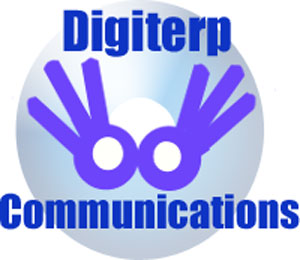
Koda Camp
In these texts, Amy explains why she feels it is important for children with Deaf parents to have the opportunity to attend Koda Camp.
ASL Version
English Version
English Transcript
For the past 5 or so years, there’s been a camp run out of Camp Mark Seven in upstate New York, in the Adirondacks, that, the camp itself has been for Deaf kids, um, and some ASL classes and immersion camps, that type of thing. But about….and that camp’s run for several years. But about 5 years ago, a week was added for, uh, KODAs, speci?cally Kids of Deaf Adults-K-O-D-As.
And, um, that camp was put together because some parents and CODAs, also adult CODAS, had expressed a need for a place for kids who have Deaf parents to get together and to be mirrored and to be in a place where they don’t really have to talk about who, um, their parents are or explain any of that. A place where they can just be kids and play and have a fantastic camp experience. Now, I started working at the camp as a camp counselor, uh, two summers ago.
And my experience there it’s , uh, it’s just been life changing. It’s been fantastic. I so wish that I’d had something like that as a child. I certainly had CODA friends growing up and went to the Deaf club with my parents and did that sort of thing. However, we never talked about what it was like, what it actually meant to have parents who were Deaf. Or what it was actually like to have friends over and for them to ask you, you know “Why do you have words at the bottom of your screen?” because of closed captions, or “Why do you have that… why does that light go off when the telephone rings?” or “Why does…why does your mother talk funny?” You know, not to…we never talked about what that felt like or – or any of the impact that it had on us. We also didn’t talk about our language use or how some of us were really good signers and others of us weren’t. And why, why was that? Or, or even within one family, um, why was it that one sibling was usually the better signer than the other. Um, but at KODA Camp, you can do that. You can talk about those things, or you don’t have to. It really doesn’t matter.
And I think the importance of KODA Camp really, really hit home for me the…the very ?rst night that the kids arrive there. And we do this, um, get to know you type game where we, it’s categories, and it’s called “Categories” and what we would do is we would give a category like “ice cream” and we’ll say, “Those of you whose favorite ice cream is chocolate, get on this side of the room. And those of you whose favorite ice cream is vanilla, get on the other side of the room.” And then the kids, you know, go to their respective spots depending on what their favorite type of ice cream is. And we do that for a lot of different categories, and they kind of get an idea of who’s like them, or, um, who’s not. And they get to know each other that way. Well, as the game goes, the very last category that we do is, um, “Who here has at least one Deaf parent?” And, of course, you know, to be at the camp, you have to have at least one Deaf parent. And, um, all the kids go over to one side of the room and, uh, it’s just amazing. I think that these kids have probably been told that they’re coming to a camp for people who have Deaf parents, and they probably have been told that. You know, it’s just been talked about, but for them to actually see what that meant, and to realize that they were going to be at camp for the next week or two weeks with kids just like them. And that, they didn’t have to explain anything. They could just be. Um, it’s just, it’s just a really powerful thing.
So, if you know of any Deaf adults who have hearing children, um, who are of camp age, um, I highly recommend that you let them know about Camp Mark Seven. We’re hoping to expand the camps so that there’ll be, uh, regional camps throughout the United States. And uh, we’ll see. We hope that it really takes off. I think that every child who has a Deaf parent should have the opportunity to attend a KODA camp.
